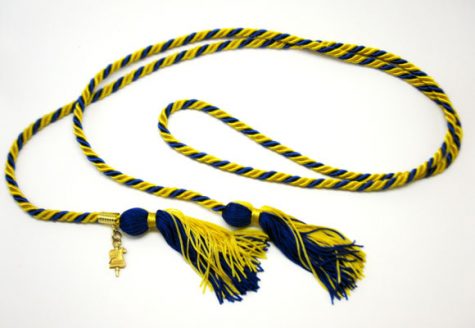THE WEEKLY SCROLL
January 31, 2020
News, tips and advice from Quill and Scroll
The Lede
Impeachment trial continues in D.C.
The impeachment trial of President Donald Trump continued this week in the U.S. Senate, and a key vote could happen as early as Friday or early next week.
The most important question right now — beyond the president’s alleged corruption and contempt of Congress — is whether the trial should include witnesses, specifically former Secretary of Defense John Bolton, who left the White House in September 2019.
Bolton is preparing to publish a tell-all book about his time in the White House, and a manuscript of the book was released to journalists and politicians late last week. In the leaked manuscript, Bolton contends what Democrats in the House of Representatives allege in their first Article of Impeachment — that President Trump was trying to force a bogus investigation of former Vice President Joe Biden in order to benefit the president’s 2020 re-election campaign.
The president, meanwhile, is using his Twitter feed to rail against the Democratic House managers who are presenting the case against the president in the Senate. He had some particularly harsh words for Rep. Adam Schiff (D-California):
“He is a corrupt pol who only dreams of the Impeachment Hoax,” Trump said. “In my opinion he is mentally deranged!”
Meanwhile, the Louisville Courier-Journal reported Thursday that Senate Majority Leader Mitch McConnell (R-Kentucky) has received campaign donations from several members of President Trump’s defense team. McConnell is on record saying he both expects and wants the president to remain in office. Removal from office requires a two-thirds majority vote in the U.S. Senate. Republicans hold 53 seats, Democrats hold 45 and independents hold two.
Wanna watch? Here’s the C-SPAN feed (begins at noon ET):
Coronavirus hits the U.S.
The Centers for Disease Control said on Thursday that a couple in Illinois are the first case of person-to-person passage of the coronavirus, the deadly virus that has led to quarantines in China and elevated health concerns around the world. There are six confirmed cases in the U.S.
The World Health Organization on Thursday called the outbreak a “global health emergency.”
South Dakota considers law making it a crime to treat transgender youth
The South Dakota House of Representatives this week approved of legislation that would make it a crime for physicians to treat transgender youth by prescribing hormone blockers or to offer related surgery to patients under 16 years old. The bill next goes to the South Dakota Senate for committee hearings.
It’s An Honor
2020 Writing, Photo and Multimedia Contest open until February 5
 Our Writing, Photo and Multimedia Contest is now open for entry until Feb. 5, 2020. This year, we’ve updated the contest so that it rewards students with the work they regularly produce in their newsrooms.
Our Writing, Photo and Multimedia Contest is now open for entry until Feb. 5, 2020. This year, we’ve updated the contest so that it rewards students with the work they regularly produce in their newsrooms.
Enter now at https://quillandscroll.org/writing-photo-multimedia-contest/. A form of payment must be completed at the time of entry. Online credit card payments must be completed by Feb. 5; purchase orders must be emailed to Quill and Scroll at the time of entry; and checks must be in our office by Feb. 14, 2020!
Nominate students now for Quill and Scroll Honors

It’s never too early to submit your school’s nominations for Quill and Scroll induction! Student memberships are coveted honors that award the top achievers in student journalism. Nominate your sophomores through seniors today!
As the spring semester continues, orders pour through our doors. Complete your orders for graduation cords and pins now to ensure quick fulfillment! We have both member and nonmember awards available.
They can be found at the bottom of this page.
THE SOURCE is on Spotify with a new episode!
On Tuesday, Quill and Scroll host Nichole Shaw sat down with special guest Kai Wright, an award-winning author, journalist and broadcaster. He currently hosts New York Public Radio’s (WNYC’s) “The United States of Anxiety,” unpacking what it means to be American and studying the intersection of national identity with other identity markers such as race, gender, class, sexuality and more in our current social, political and economic climate.
 A note from host Nichole Shaw: Sitting down with Kai opened my eyes to the power of storytelling and the responsibility we have as journalists to truly engage with our audiences and our sources. In podcasting specifically, we are “whispering into someone’s ear,” as Kai said in our conversation. There’s an unparalleled intimacy that comes with podcasting, and Kai not only taught me that during our conversation, but he showed me through interaction that being passionate about the work you’re doing is of utmost importance.
A note from host Nichole Shaw: Sitting down with Kai opened my eyes to the power of storytelling and the responsibility we have as journalists to truly engage with our audiences and our sources. In podcasting specifically, we are “whispering into someone’s ear,” as Kai said in our conversation. There’s an unparalleled intimacy that comes with podcasting, and Kai not only taught me that during our conversation, but he showed me through interaction that being passionate about the work you’re doing is of utmost importance.
If you do not care about what you’re reporting, sharing and publishing, you are doing your audience and yourself a disservice. I recommend that anyone who is in the industry of storytelling listen to this podcast. It’s an eye-opening conversation about the power of storytelling in podcasting in conjunction with discussions of racial politics, sexuality and the public use of history.
Kai Wright received the GLAAD Media Award for Outstanding Digital Journalism Article and the Lambda Literary Award for LGBT Nonfiction.
Follow our Spotify account!
Not too early to apply for Q&S scholarships
The scholarship forms for both students and advisers are open now.
For students, scholarships can be used for tuition, room and board at any college or university. Recipients must major in journalism or a related area of communications.
For advisers, Q&S identifies and rewards experienced journalism teachers and publication advisers who seek the opportunity to upgrade their journalism skills, teaching methodologies and advising techniques.
The scholarship forms for application are open until April 15 (advisers) and May 10 (students).
Chapter of the Year
Quill and Scroll this year will award its first Vanessa Shelton Chapter of the Year honor to a deserving chapter. The application process is simple and free, so there’s no reason not to enter. Here’s a link to the page describing the award and former Quill and Scroll Executive Director Vanessa Shelton. It’s also where you’ll find the entry form.
The 2020 Vanessa Shelton Chapter of the Year will receive:
- A trophy signifying the winning chapter’s achievement.
- One student from the chapter will be awarded a spot on the Quill and Scroll Student Advisory Board for the coming year.
- Memberships for five eligible staff members —including five pins and honor cords — in Quill and Scroll for qualifying students from the school (A $160 value).
What’s Viral?
Kobe Bryant’s unexpected death
Fans across the world were shocked by basketball legend Kobe Bryant’s, 41, sudden death on Sunday, January 26. Bryant, along with his 13-year-old daughter Gianna and seven other passengers died in a fatal helicopter crash on the way to his daughter’s basketball game in Calabasas, California.
The news of Bryant’s death sparked remembrance of his incredible impact both inside and outside of the NBA. At 17, Bryant was the youngest player ever to join the NBA, playing for 20 years with the Los Angeles Lakers. In that time, Bryant won five NBA titles and 18 All-Star selections. Outside of his basketball career, Bryant was known for his brand term “Mamba Mentality,” writing a book and creating the Mamba Sports Academy in 2018. He created an animated short film called “Dear Basketball” that won him an Oscar also in 2018. He was a giant supporter of women’s athletics, leaving a huge influence on the WBNA through his technique.
His death also sparked a smaller conversation on how to deal with talking about the complexities of someone’s life after they’ve left this world. Bryant was accused of sexually assaulting a 19-year-old hotel employee and was set for a court trial in July 2003. It was dropped right before the trial, with prosecutors citing the accuser’s unwillingness to testify. In the aftermath of the case, Bryant was named the NBA’s Most Valuable Player in 2008 and the Finals’ Most Valuable Player in 2009 and 2010. Discussion of this part of Bryant’s past spilled onto the feed of Twitter users and was even discussed in The New York Times.
It is undoubtable that Bryant touched many people in his career and his personal life. We saw as much in how his death sparked thousands of fans—and many celebrities—to share thoughts and prayers regarding the victims of the helicopter crash. You can view them below.
Kobe was so much more than an athlete, he was a family man. That was what we had most in common. I would hug his children like they were my own and he would embrace my kids like they were his. His baby girl Gigi was born on the same day as my youngest daughter Me’Arah. pic.twitter.com/BHBPN5Wq8V
— SHAQ (@SHAQ) January 26, 2020
Like everyone, I’m stunned and saddened by the news about Kobe Bryant. My heart is broken for his wife and family.
— Ellen DeGeneres (@TheEllenShow) January 26, 2020
Kobe was a legend on the court and just getting started in what would have been just as meaningful a second act. To lose Gianna is even more heartbreaking to us as parents. Michelle and I send love and prayers to Vanessa and the entire Bryant family on an unthinkable day.
— Barack Obama (@BarackObama) January 26, 2020
Billie Eillish big winner at 2020 Grammys
Billie Eillish, 18, became the first woman in Grammy history to win the big four categories at this year’s Grammy Awards: Best New Artist, Song of the Year, Record of the Year and Album of the Year. Her Record and Song of the Year awards are accredited to her massive hit “Bad Guy,” along with her Album of the Year “When We All Fall Asleep, Where Do We Go.” She is the youngest artist to ever win Album of the Year and Record of the Year. Her brother, FINNEAS, 22, is the youngest nominee to ever win Producer of the Year.
Other big winners at the 2020 Grammy’s include Billy Ray Cyrus and Lil Nas X, Gary Clark Jr., Lady Gaga and Lizzo.
Listen to all the winners here.
What we can learn from ‘old school journalism’
On January 23, 2020, retired PBS news anchor Jim Lehrer died, leaving behind a legacy of integrity and standards-based journalism. His death caused journalists everywhere to reflect on the work Lehrer completed in his long and successful career as a journalist, author and broadcaster.
Lehrer represented what some refer to as old journalism — he was, by trade, a newspaperman. In an editorial The Dallas Morning News referred to Lehrer as, “an example of how the work should be done of both presenting and consuming information about our world.”
Lehrer’s 16 standards of good journalism have been shared many times since their first appearance in a 1997 Aspen Institute report.
Throughout his years in journalism, Lehrer advised journalists of all ages to practice the craft with integrity, principle and ethics:
“Do nothing I cannot defend. Cover, write and present every story with the care I would want if the story were about me. Assume there is at least one other side or version to every story. Assume the viewer is as smart and caring and as good a person as I am. Assume the same about all people on whom I report. Assume personal lives are a private matter until a legitimate turn in the story absolutely mandates otherwise. Carefully separate opinion and analysis from straight news stories and clearly label everything. Do not use anonymous sources or blind quotes except on rare and monumental occasions. No one should ever be allowed to attack another anonymously. And, finally, I am not in the entertainment business.”
Just a Thought
At a time when journalists around the world are being jailed for their reporting, Sec Pompeo’s insulting and contemptuous comments to NPR’s @NPRKelly are beneath the office of the Secretary of State.
Read our letter pic.twitter.com/x3qaRrUXTM
— Senator Bob Menendez (@SenatorMenendez) January 25, 2020
By Nichole Shaw
Political conversations have been a part of the media since presses could print. Recent developments however, are changing the nature in which politicians and government officials interact with one another. A testament to this is “All Things Considered” NPR co-host Mary Louise Kelly’s opinion piece for the New York Times.
In the piece, she outlines her travels and conversations over the span of the past three weeks with Iran’s foreign minister, Javad Zarif, and the United States’s Secretary of State, Mike Pompeo. She outlines her conversations to show the story behind Mr. Pompeo’s accusations that Kelly lied to him twice. The first time, Pompeo said, was in “setting up [their] interview,” for which he provides no evidence. The second time was “in agreeing to have [their] post-interview conversation off the record.” She rebuked Pompeo’s statement by stating that while the staffer who led her to Pompeo’s private quarters had stipulated that she not bring a recorder, “she did not say we were off the record, nor would I have agreed.”
The interesting thing about this piece is that Kelly shows the shifting nature in which government officials are engaging and using journalists. The conversations these two officials have had with journalists show the conspicuous manner in how conversations are being had. Rather than planning talks directly between themselves and then briefing journalists and the public at large on political issues, Zarif and Pompeo instead take mild digs at each other, finding out their latest thoughts on each other through the reports of journalists.
“Journalists don’t sit down with senior government officials in the service of scoring political points,” Kelly wrote. “We do it in the service of asking tough questions, on behalf of our fellow citizens. And then sharing the answers — or lack thereof — with the world.”
The responsibility of the journalist is to practice fair and accurate reporting to the best of their ability, while maintaining a loyalty to the public. They are the watchdog of those in power and are to bark when necessary, writing stories, releasing broadcasts, sharing news—they keep the public informed so the public can then assert their own opinions on the subject and act accordingly, understanding how the decisions and actions of their officials will impact their personal lives.
“There is a reason that freedom of the press is enshrined in the Constitution,” Kelly wrote. “There is a reason it matters that people in positions of power — people charged with steering the foreign policy of entire nations — be held to account. The stakes are too high for their impulses and decisions not to be examined in as thoughtful and rigorous an interview as is possible.”
In the wake of this week’s Student Press Freedom Day, and as we move forward in our own reporting and reading of the news, it’s important to remember this responsibility journalists have. Furthermore, it’s imperative that we as journalists remember our established right to freedom of the press, protecting the public against government corruption, authoritarianism, tyranny and more.
